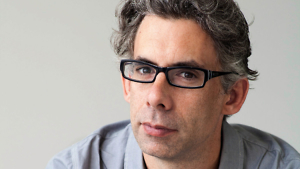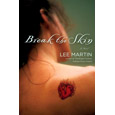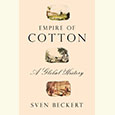Passion Play
Social entrepreneur Sam Davidson makes the case for following your bliss
It’s no secret that stuff doesn’t bring happiness, but that doesn’t stop people from trying. Many of us, according to Sam Davidson, are trapped in meaningless jobs, meaningless relationships, and meaningless lives, all the while accumulating more possessions to cram into our garages and closets. And for Davidson, a motivational speaker and author, even less tangible distractions—long commutes, bucket lists, and complaining—also keep us from following our bliss. In 50 Things Your Life Doesn’t Need, Davidson recommends pursuing a life of passion and purpose––one that not only leads to fulfillment but may also result in a better world.
Davidson is co-founder of Cool People Care, a “lifestyle brand” that, through its website and organic-clothing line, encourages people to become involved and live a more thoughtful and productive existence. A Nashville resident, he has spoken and led workshops at Harvard University, YMCA of USA, and the Institute for International Education. Sam Davidson recently discussed his work via email.
Chapter 16: 50 Things Your Life Doesn’t Need is a guide for happiness. Is everybody supposed to be happy?
Davidson: Yes! Why wouldn’t you want to be happy? Have you ever been happy? Isn’t it the best? Of course, other emotions play a vital role in our lives, and it is impossible to be happy all of the time, but chasing happiness is a worthy pursuit; certainly we all need more happy moments in our day.
Chapter 16: Are passions necessarily related to happiness?
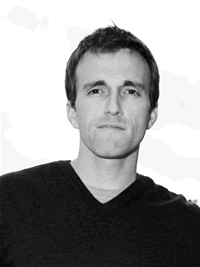 Davidson: In my experience, the two are directly related. The people I know who are happiest in their work (and personal lives) are doing something they’re deeply passionate about. Not everyone can have a job they love (I warn about this in the book), but spending time on a passionate pursuit––whether it’s hiking on the weekends, starting your own company, or reading to your kids––will make you much happier and fulfilled.
Davidson: In my experience, the two are directly related. The people I know who are happiest in their work (and personal lives) are doing something they’re deeply passionate about. Not everyone can have a job they love (I warn about this in the book), but spending time on a passionate pursuit––whether it’s hiking on the weekends, starting your own company, or reading to your kids––will make you much happier and fulfilled.
Chapter 16: What was the impetus behind 50 Things Your Life Doesn’t Need? Does it reflect a change in your own passions?
Davidson: It reflects a realization of my own passions. Those of us who have found our life’s passion can have no other journey than to live it to the fullest. Once discovered, we are all happiest and most productive when we can focus on that which matters most. Getting rid of stuff to find or focus on our passion is the central theme of the book, which is a practice I incorporate into my life in order to do all that I do.
Chapter 16: Just because you’re passionate about something doesn’t mean you’re good at it. Is competency important here, or is that irrelevant so long as you feel deeply about your chosen activity?
Davidson: Of course. I am passionate about baseball. But, since I have no skill whatsoever when it comes to hitting a curveball or throwing a ball 95 mph, I’ll never have a career as a player. I could, however, still work in the industry. Or, I could be equally happy by going to baseball games with my family on the weekend. The key is to merge your passion with your talent, which is the true sweet spot of a life or career.
Chapter 16: Passion can break your heart. What do you say to someone who’s followed his or her passion only to emerge disillusioned and disappointed?
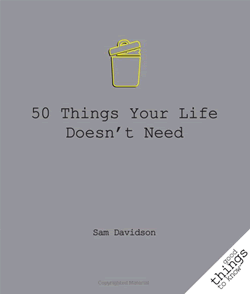 Davidson: I sympathize with them. In the book, I offer a handful of warnings about passion, including the fact that what you really think you’re passionate about may turn out to be nothing more than a passing interest. In my experience, even those who fail when chasing a passion are still happier for it. Following a passion doesn’t mean you’ll end up rich or famous; sometimes it will mean the contrary. But, you’ll never be more fulfilled in what you’re doing.
Davidson: I sympathize with them. In the book, I offer a handful of warnings about passion, including the fact that what you really think you’re passionate about may turn out to be nothing more than a passing interest. In my experience, even those who fail when chasing a passion are still happier for it. Following a passion doesn’t mean you’ll end up rich or famous; sometimes it will mean the contrary. But, you’ll never be more fulfilled in what you’re doing.
Chapter 16: One of the fifty things you recommend getting rid of is “analog versions of digital stuff.” What do you say to someone who argues that analog versions of pictures, music, etc., have more human feel or passion than digital ones?
Davidson: I would tell them that there are forty-nine other things they can easily get rid of. I’d also bet there are things that still fit into this category––recipes, instruction manuals, movies, etc. I have “analog” pictures hanging on my walls; I didn’t purge all of them. But I did get rid of pictures that have no sentimental value whatsoever.
Chapter 16: Isn’t it risky, in a bad job climate, for people to follow their passion to a career change?
Davidson: Quite the contrary. I think we’re in a time where it’s riskier not to follow your passion. How many people are now jobless because they “played it safe” and decided to get a corporate nine-to-five job because they thought entrepreneurship or following a dream was risky? In an age where corporate loyalty doesn’t exist, the only way to ensure your own happiness––and even your own job––is to take charge of your own career and chase down whatever dreams you have. Risk is inherent in any career field, whether you’re a teacher or a tech entrepreneur.
Chapter 16: Of the fifty things our lives don’t need, is there a particular one that you think limits happiness the most?
Davidson: I’d say that getting rid of other people’s expectations is the best thing any of us could do to be happier and find what truly matters to us. Getting in touch with the kind of person we truly hope to be––while letting go of the shackles of others’ expectations––can help us become more passionate much more quickly.
Sam Davidson will appear at BookMan/BookWoman in Nashville on June 2 at 5 p.m.
